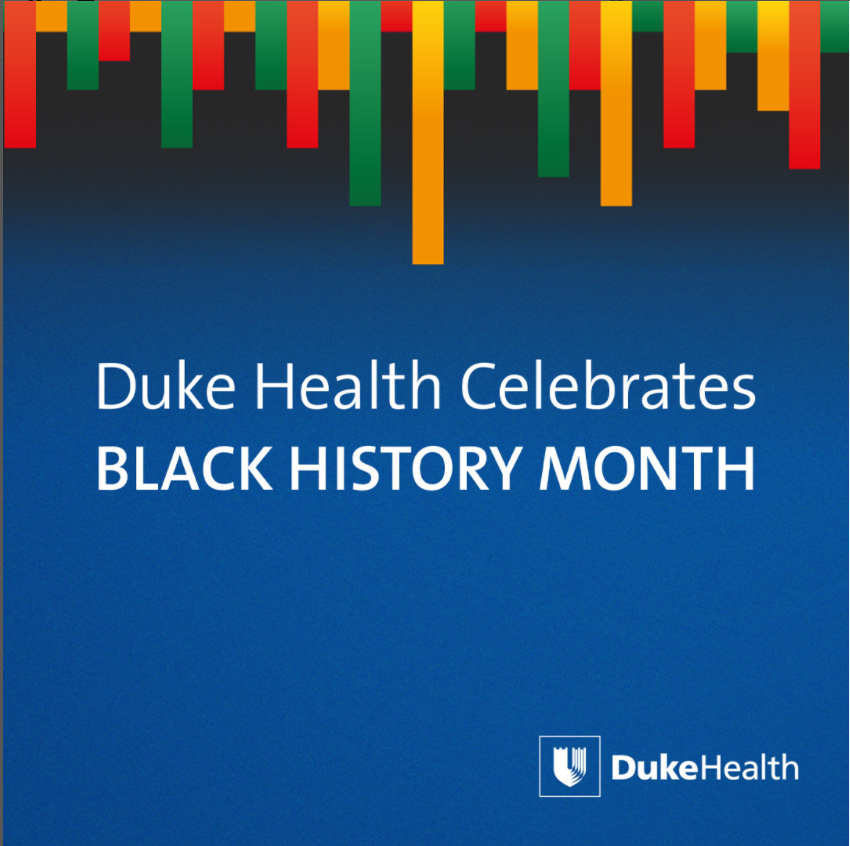Fighting Inequity in Academic Neurology; NCCU Careers in Neurology and Neuroscience Day

A week ago, Dr. Nimish Mohile from the University of Rochester gave an inspirational grand rounds talk on combatting inequity in academic neurology departments. He reviewed the many changes that he and his colleagues have implemented to move toward great equity in their department. If you missed it, you can watch it here.
As I was listening to his talk, it occurred to me that many of you have joined our department within the past 5 years and might not know the various steps we have taken to improve equity within Duke Neurology during that time. If you want a comprehensive look at what we’ve done, check out the website that Will Alexander puts much effort into maintaining for us.
For this email, I’ll focus specifically on the ideas that Dr. Mohile presented and how they apply at Duke.
His first suggestion was to have a DEI Grand Rounds series, which, of course we have, as Dr. Mohile was part of this series. As part of this series, we have covered topics from health disparities affecting marginalized racial groups, LGBTQ+ populations, housing insecure patients, and patients with disabilities. We also had lectures on White privilege, bystander intervention, inclusive leadership, and social determinants of health. All of these are still available in the Grand Rounds archive.
Next, he talked about community engagement. From our upcoming NCCU Careers in Neurology and Neuroscience day to the department’s recent involvement in Habitat for Humanity, we are seeing more involvement with Durham. This is still an area we hope to develop further.
Dr. Mohile discussed the importance of having well-written and accessible policies that support equity. At Duke Neurology, we have a handbook that provides easy access to departmental policies, including the anti-tokenism policy (officially, the Promotional Publication Policy and Procedures) to prevent members of the department from marginalized groups from being exploited due to appearance or other demographics. We also have an anonymous reporting structure to express concerns about any violation of our policies.
The importance of promotional equity was a major topic that he addressed. Although the department must operate within the regulations of the School of Medicine, Dr. Laskowitz recently held a dinner to ensure that those who are eligible for promotion understand what is needed to achieve it. Additionally, the SOM has recently updated its promotions criteria to explicitly include DEI work as a path to promotion, reducing the tax placed on faculty members of color who disproportionately do this work.
Dr. Mohile encouraged departments to implement defined terms of service for leadership, which we did several years ago. Division chiefs and vice chairs now serve 5-year terms at which time they are reviewed and can be reappointed. This is part of increased accountability for leadership.
The theme with many of these changes is that they are systemic and foundational. Inclusion and equity need to be built in to how we do things; they are more than buzzwords. I encourage you to review our D&I website, linked above, to see the other work we’ve done in this area and please reach out to me with any questions.
As I’m sure you know, it’s Black History Month. That makes this the perfect time to commit to anti-racism. While Duke Neurology does not mandate specific diversity, equity, and inclusion training programs, I would strongly encourage everyone to participate in this phenomenally well-produced anti-racism education program by the AAN.
It provides neurology-specific training to help you understand the concept of anti-racism, how racism is perpetuated, and what we can be doing about it. It’s a long program, but it’s not meant to be done in one sitting. In fact, it would be fine to spend the next year working through this at your own pace.
The Duke Office of Institutional Equity also has numerous offerings for additional education on a wide variety of DEI topics. Register for the course of your choice here.
- Discrimination and Harassment: What do I do when I am confronted with a problem in my unit that might be discrimination, harassment or sexual misconduct?
- Equitable Hiring Practices: Strategies for increasing the diversity in your unit and beginning to create a positive climate in which to bring new staff
- LGBTQIA Foundations: Awareness, Inclusion, Workplace Considerations
- LGBTQIA Health: Clinical Setting Considerations
- Microaggressions and Implicit Bias: The Basics
- White Supremacy Culture: Impact on Workplace Interactions
- Inter and Intrapersonal Cultural Humility: Growing Within Ourselves and Our Relationships
- Generational Diversity in the Workplace: Creating a More Inclusive Team
- Trauma Informed Approaches for Leadership and Supervision: A DEI Lens
- Diversity: What’s COVID Got To Do With It? (Unraveling Our Collective Trauma)
I will be sending a separate email with more details about the upcoming Career Explorations day targeted to NCCU students who are considering a career in neurology or neuroscience, but here’s the link for those who want to get a jump on signing up. Many volunteers are needed with jobs broken down into one-hour intervals or less, so you don’t have to give up your whole Saturday. Sign up for as many as you wish, though. The event will be Saturday, April 29, 8:00-3:30 at the JB Duke Hotel.
